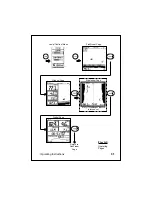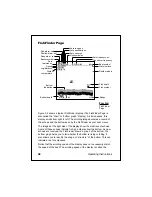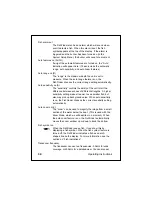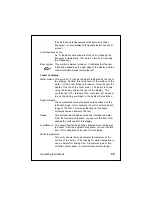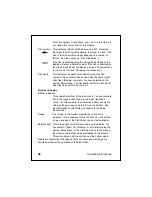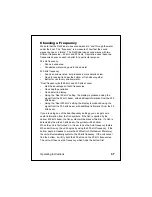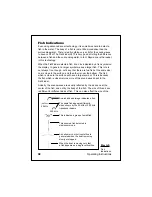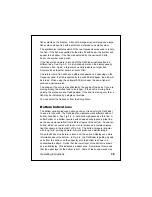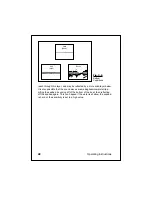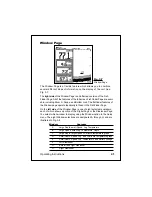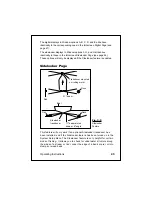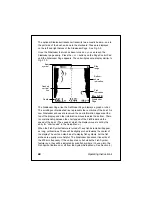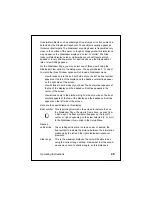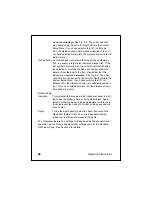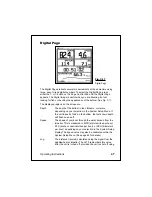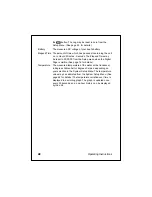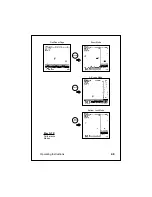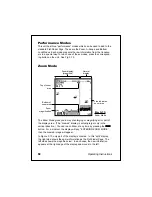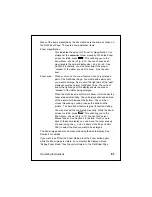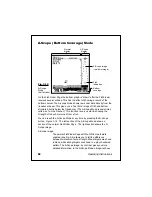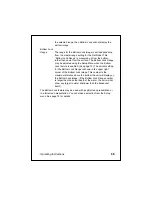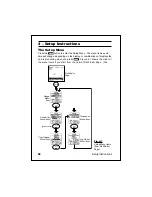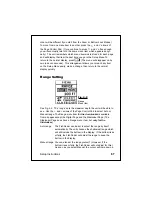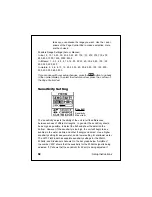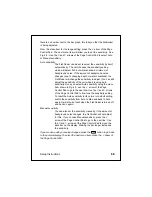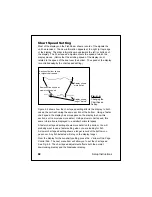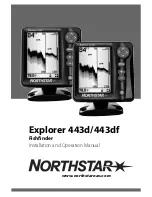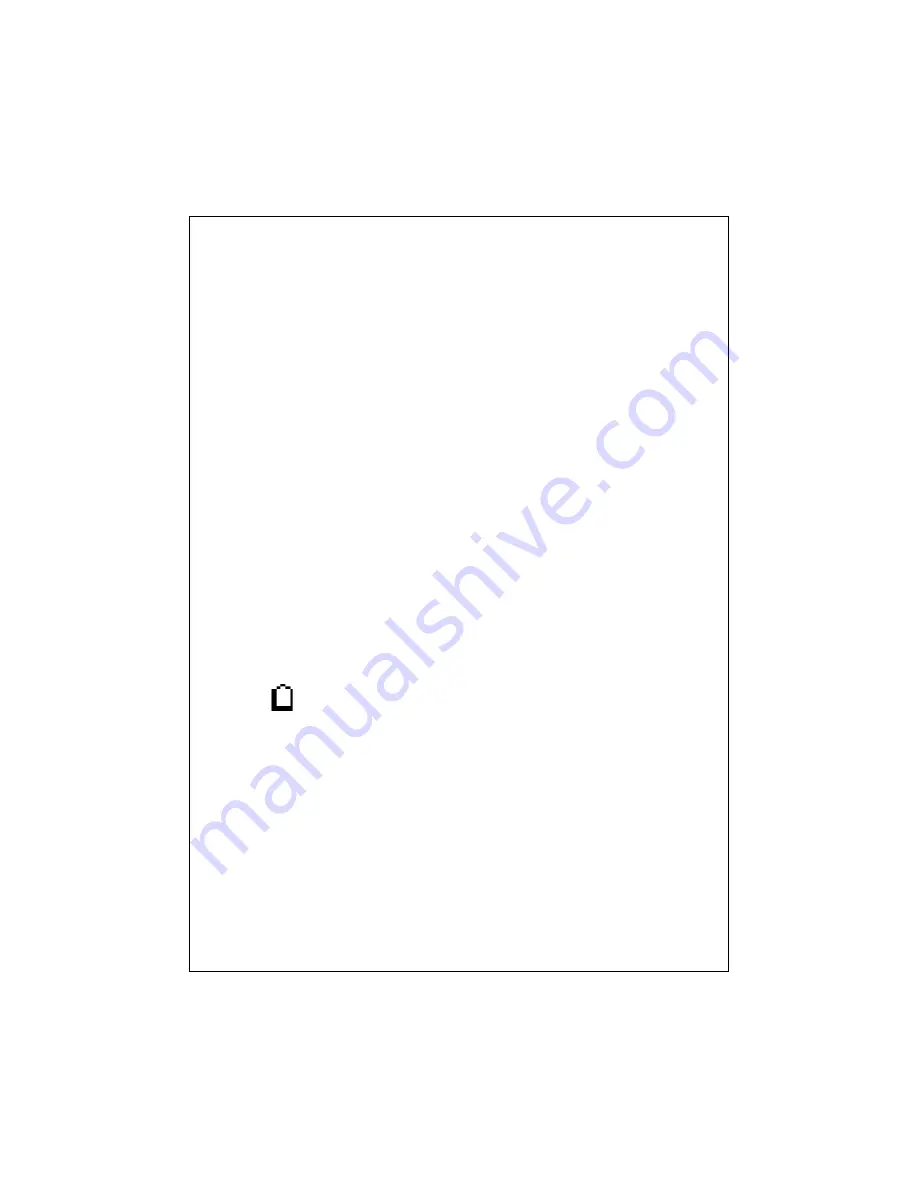
45
Operating Instructions
Underwater objects such as submerged tree stumps or rocks can also be
detected by the Sidelooker transducer. These objects usually appear as
thicker vertical targets. The Sidelooker sounding beam is transmitted very
close to the surface of the water. In rough or choppy water this turbulence
may appear on the Sidelooker display as “noise” or “clutter.” The Side-
looker will also display noise or clutter when your boat travels at high
speeds or in very shallow water. For best results, use the Sidelooker at
idle or slow trolling speeds.
On the Sidelooker Page, you may select one of three views using the
Sidelooker View option in the Setup menu. These are labeled F, G, and H
to match the three Window options which include Sidelooker views.
View F looks only to the port (left) side of your boat. The boat symbol
appears at the top of the display and the dashed vertical line appear
on the right side of the screen.
View G looks to both sides of your boat. The boat symbol appears at
the top of the display and the dashed vertical line appears in the
center of the screen.
View H looks only to the starboard (right) side of your boat. The boat
symbol appears at the top of the display and the dashed vertical line
appears on the left side of the screen.
Here are the special items on this display:
Boat symbol
This is pointing forward on the screen to indicate that, on
the Sidelooker Page, the view is from above, as seen from
a bird’s-eye. The boat symbol will appear on the top left,
center, or right, depending on the view selected (F, G, or H)
in the Sidelooker View option in the Setup Menu.
Dashed
vertical line
The scrolling vertical line is drawn under, or behind, the
boat
symbol
to
indicate
the
division
between
the
information
produced by the left and the right sidelooker transducer
elements.
Side range
This is the maximum distance the unit will be able to see
using the current range setting. Remember that the sound
waves move out at a shallow angle, so this distance is

